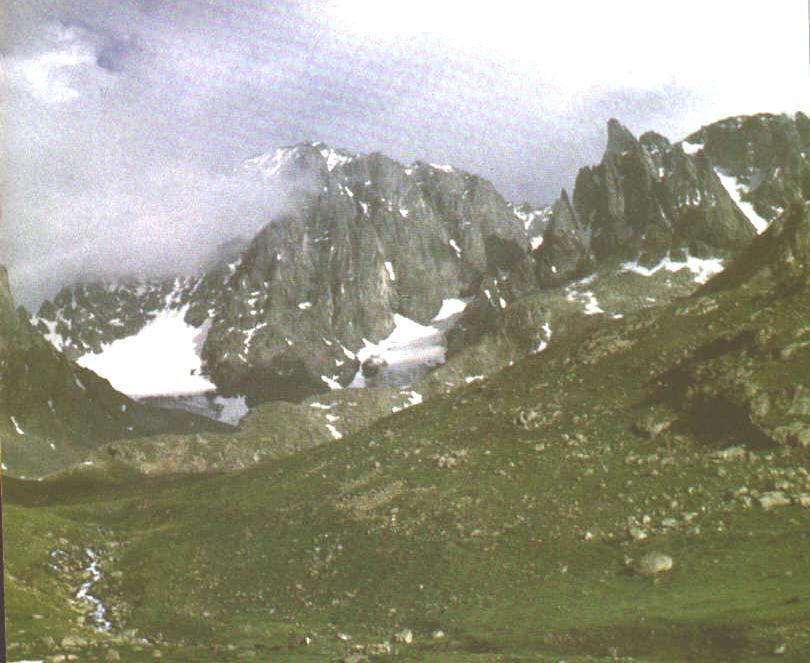
The Kackar Mountains
ô3932 m."
In the rainy and lush landscapes of Northeastern Turkey, the Kaškar mountains form the Northern section of the Anatolian mountain chain.The Kaškar-Kavron summit, at an altitude of 3932 meters, is the highest point in the range. Extensive glacier and water erosion have given these mountains their craggy, rugged look, and they are known for the complexity and power of the streams and rivers which rush down to the lower altitudes. In fact, this range is the third most important glacial region in Turkey following the Agri (Ararat) and CiloSat mountains. The geological and mountaineering aspects of the Kaškars contribute to their importance in Turkeyĺs economy and tourism.
The region enjoys an almost sub-tropical climate of temperate yet rainy weather with an average temperature of 14 C. The lowest temperature, 7 C., falls in the month of January while August sees the hottest days reaching a maximum recorded temperature of 22.6 C
The Kaškars rise between the shores of the Black Sea to the North and the Coruh river valley to the South. On the Northern flank, an immense variety of vegetation flourishes in the rainy climate. Up to 500 metres above sea level, tea plantations and citrus orchards cover the hillsides. Chestnut, hornbeam, beech and other large-leafed trees forest the slopes to 750 metres. Between 750-1500 metres of elevation, pines mix in with the large-leafed trees until gradually they remain the only species of tree from 1500-2000 metres. Alpine meadows and other grassy vegetation cover the ground above 2100 metres. On the Southern faces of the Kaškars., which receive strong sunshine and less precipitation, the agriculture is based on the cultivation of fruit and vines. On the Northern side, in the higher elevations, meadows of wild flowers and grasses blanket the slopes up to elevations of 2300 metres.
Trips and Climbs
The Altiparmak, Kavron and Varsamba mountains are the principal peaks of the Kackars. Both the North and South faces of the Altiparmak and Kavron can be scaled but Varsamba should only be attempted from the North face. It is imperative to use a local guide when climbing the Kaškars.